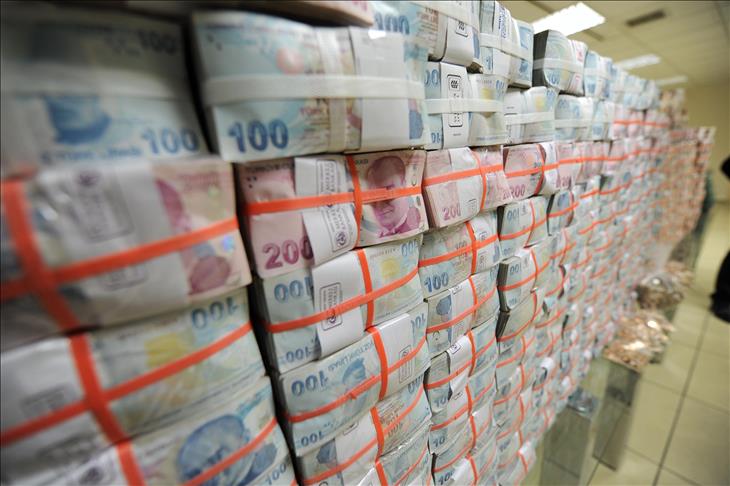
ANKARA
The richest 20 percent of Turkish citizens earned 46.6 percent of the country's total income last year, while the lowest 20 percent earned only 6.1 percent, Turkey's statistical authority has reported.
Turkstat reported on Monday that the figures were a slight improvement on the previous year, where the lowest 20 percent received 5.9 percent.
Living conditions had also improved slightly in the country, with the annual average household income estimated to have reached 29,479 ($13,160) Turkish lira, up from 26,577 lira in 2012.
The report indicated 15 percent of the population was at risk of suffering poverty - 13.6 percent in urban areas and 14.3 percent in rural areas - down from 16.3 percent in 2012.
Enis Bagdadioglu, a researcher for income inequality at the Confederation of Turkish Trade Unions said: "Turkey has unequal income distribution and the Turkstat report confirms this.
"Increasing national income is not the only aim in the principle of the social state."
"What is important is that prosperity is balanced with fair distribution in society. Human beings and their needs must be prioritized in economic policies,” Bagdadioglu added.
- High poverty rate
The number of people who experienced financial difficulty declined from 59.2 percent in 2012 to 49.7 percent in 2013.
Raci Hosgor, analyst at Turkey's management consultation Association, said: "The poverty rate in Turkey is quite high compared to developed countries.
"When the household size increases and the level of education decreases, the poverty rate rises. The poverty rate in the agriculture sector is higher than other sectors."
Hosgor emphasized that employment opportunities had increased through globalization.
Hosgor said: "However, globalization also affects low-qualified workers in a negative way.
"Turkey needs to prioritize some structural legal reforms in order to attract foreign investors to the country."
Among the sources of income, salaries were the highest contributors, with a share of 48.3 percent followed by "social transfers" with 19.7 percent and entrepreneurial income with a 19.6 share.
The data showed that 92 percent of social transfers were pensions and survivor benefits, which made up 18.2 percent of income sources.
- Widening gap
A total of 67.3 percent of entrepreneurial income was accumulated through non-agricultural sectors.
Meanwhile, top earners were seen to be capturing a growing share of total income in many countries, according to an OECD’s report on April 30.
The OECD said that, in order to tackle the increase in overall inequality, a comprehensive policy strategy such as tax reforms, transfer policies and other social policies, as well as labor market and education policies were needed.
Earlier this month, the US Federal Reserve said in its Survey of Consumer Finances that the gap between the richest and poorest Americans had widened.
"Pre-tax income for the richest 10 percent of US families rose 10 percent in 2013 from 2010, but families in the bottom 40 percent saw their average inflation-adjusted income decline over the period," the report said.
In comparison, 17 percent of the EU-28 population was assessed to be at risk of poverty after social transfers in 2012 according to Eurostat, EU's statistical authority.
Greece was highest with 23.1 percent, followed by Romania at 22.6 percent.
The lowest proportions of people at risk of poverty were observed in the Netherlands, with 10.1 percent and the Czech Republic with 9.6 percent.
Anadolu Agency website contains only a portion of the news stories offered to subscribers in the AA News Broadcasting System (HAS), and in summarized form. Please contact us for subscription options.

